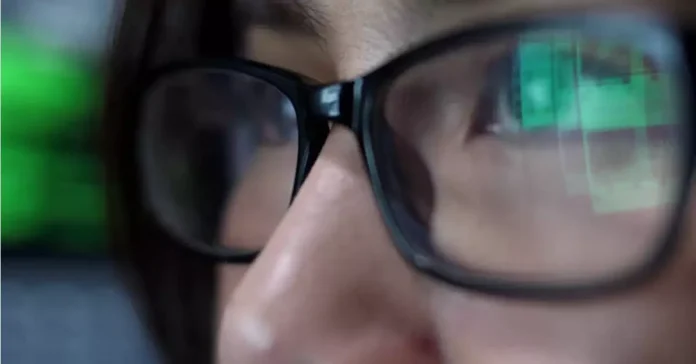Blurry vision can be more than just a fleeting inconvenience. It could be your eyes signaling a potential issue that demands attention. Understanding the early warning signs is crucial for maintaining good eye health. This article will explore common indicators that your vision might be in jeopardy and why you should notice them. Additionally, we’ll provide tips and advice on what you can do to promote better eye health.
Early Warning Signs of Blurry Vision You Shouldn’t Ignore
Cloudy or Hazy Vision
Suppose the world around you appears consistently cloudy or hazy. In that case, it’s a sign that your eyes might struggle to focus correctly. It could be due to various factors, including refractive errors or eye diseases. Don’t dismiss this symptom; schedule an eye exam to determine the issue’s root.
Tip: Ensure your living and working spaces are well-lit. Adequate lighting reduces eye strain and can alleviate symptoms of cloudy vision.Difficulty Seeing Clearly
Struggling to see objects, especially at a distance, may indicate myopia (nearsightedness) or other vision problems. Squinting or constantly adjusting your gaze could be your eyes’ way of compensating for blurred vision. Early intervention can prevent further deterioration.
Tip: Take regular breaks when working on a computer or reading. Adopt the 20-20-20 rule: Take a break every 20 minutes and focus on something 20 feet (6.1 meters) away for at least 20 seconds. This practice helps alleviate eye strain and promotes visual comfort.Frequent Headaches and Eye Strain
Uncorrected vision issues might link to persistent headaches and eye strain, especially after reading or using digital screens. These symptoms can affect your daily life and productivity. An eye examination can help identify the cause and provide relief.
Advice: Invest in blue light-blocking glasses if you spend extended periods in front of screens. Reduce eye strain by actively adjusting the screen brightness to a comfortable level.Seeing Halos Around Lights
Seeing halos around lights, especially in low-light conditions, could indicate astigmatism, cataracts, or other eye conditions. Please do not ignore this phenomenon, as it may show changes in your cornea or lens.
Tip: Regularly consume foods rich in vitamins A, C, and E, such as carrots, citrus fruits, and nuts, to support eye health.Double Vision
Experiencing double vision can be disconcerting and is often a sign that your eyes aren’t working together as they should. Issues with eye muscles or the nerves controlling them could cause this. Seek professional advice promptly to determine the cause.
Advice: Avoid excessive alcohol consumption, as it can contribute to double vision. If the issue persists, consult with an eye care specialist.Changes in Color Perception
Noticing changes in your color perception may indicate issues with your retina or optic nerve. An eye care professional should evaluate these changes, as they can impact your ability to distinguish between colors accurately.
Tip: Consume leafy greens, berries, and fish rich in omega-3 fatty acids to support overall eye health.Gradual Loss of Peripheral Vision
A gradual loss of peripheral vision could be indicative of conditions like glaucoma. As this typically occurs gradually, it may go unnoticed until significant damage has occurred. Regular eye check-ups can detect and manage such conditions in their early stages.
Advice: Maintain a healthy lifestyle with regular exercise to support overall eye health. Include antioxidant-rich foods like spinach and kale in your diet.
Conclusion
Your eyes are precious, and early detection of vision issues is critical to maintaining optimal eye health. If you experience any of these warning signs, don’t hesitate to consult with an eye care professional. Ignoring the signals your eyes are sending can lead to more severe complications. Remember, taking care of your vision today ensures a more transparent and brighter future.
Frequently Asked Questions (FAQs)
How often should I have my eyes checked, even if I don’t experience blurry vision?
It is recommended to have a comprehensive eye exam every two years, even if you are not currently experiencing vision problems. Regular check-ups can detect issues early on, preventing potential vision concerns.
Can a poor diet affect my vision and contribute to blurry eyesight?
Yes, a diet lacking essential nutrients can impact eye health. A balanced diet rich in vitamins A, C, E and omega-3 fatty acids can support optimal vision.
Are there specific eye exercises to improve blurry vision?
While eye exercises can help alleviate eye strain, consulting an eye care professional for personalized advice is essential. Simple practices like the 20-20-20 rule (taking a break every 20 minutes) can also be beneficial.
Can digital screens cause long-term damage to my eyes?
Prolonged exposure to digital screens can contribute to eye strain and discomfort, known as Computer Vision Syndrome. Taking regular breaks, adjusting screen brightness, and using blue light filters can help mitigate potential long-term effects.
Can natural remedies or foods improve vision and reduce blurriness?
Certain foods, such as leafy greens, carrots, and berries, are known to support eye health. However, it’s essential to maintain a balanced diet and consult with a healthcare professional for personalized recommendations.
At what age should children start having regular eye check-ups?
Children should have their first eye exam around six months, and regular check-ups should follow at age three and before starting school. Early detection of vision issues is crucial for proper development.
Can blurry vision be a symptom of underlying health conditions?
Yes, in some cases, blurry vision can be a symptom of underlying health issues such as diabetes, hypertension, or neurological disorders. If you experience persistent blurriness, it’s crucial to consult with a healthcare professional.
Are there lifestyle changes that can help prevent blurry vision?
Adopting a healthy lifestyle, including regular exercise, a balanced diet, and proper hydration, can improve overall eye health and help prevent blurry vision. Additionally, avoiding smoking and managing stress can have positive effects.
How does age impact the likelihood of experiencing blurry vision?
As individuals age, the risk of developing age-related eye conditions such as presbyopia, cataracts, or macular degeneration increases. Regular eye check-ups become crucial to detecting and addressing these issues early.
Can contact lenses or eyeglasses worsen blurry vision if not prescribed correctly?
Wearing improperly prescribed or outdated corrective lenses can contribute to blurry vision and discomfort. It’s essential to have regular eye examinations to ensure that your prescription is up-to-date and suitable for your current eye health.










